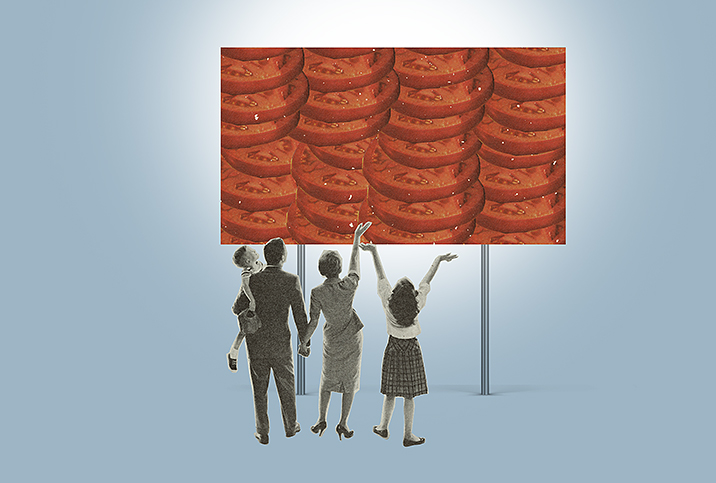Fad Diets Are Overrated and Unhealthy

Saying diet culture is pervasive is a vast understatement. No matter where you look, you see ads promoting weight loss in some capacity, whether it's a supplement, a diet or a celebrity touting how they lost so much weight! on a program.
With societal emphasis on thinness and the not-always-true association of a slender body with health, this multibillion dollar industry makes sense. Everyone wants to be thin, but losing weight is hard. Fad diets offer a shortcut to losing weight, but the fact is most of them do not work, and some can even lead to dangerous health repercussions.
Easy come, easy go
While the individual trends themselves come and go, fad diets are not a fad. Fletcherism, or the idea to chew each mouthful of food until it's practically liquid before you swallow it, was popular in the early 1900s. In the 1920s, the cigarette diet was all the rage. The grapefruit diet of the 1970s told people to eat citrus fruits with every meal. You probably remember, and may know people who still obey, the mega push for low-fat foods of the 1990s and early 2000s.
Each decade has its own list of fad diets, but these diets don't tend to make it to the next because they don't work.
Intermittent fasting or starving yourself?
It's pretty self-explanatory: Dieters who practice intermittent fasting schedule themselves for prolonged period(s) without food. The idea is that during these intervals, your body can burn excess fat. However, there is not enough scientific data to debunk or confirm the validity of this trend. In theory, you consume fewer calories overall, but you deprive yourself of food for long periods of time, which could lead to an eating disorder. Going without food could also encourage binging during the windows when you are allowed to eat, potentially derailing your weight-loss goal.
Keto or eating excess fat?
If you've seen people eating fat bombs, replacing the bread on a sandwich with bell pepper or making a pizza crust out of more cheese, you've witnessed the keto diet. This fad diet touts cutting carbs and increasing your fat intake. The idea is that without the body's preferred energy source—carbohydrates—the body will start burning fat cells instead, in a state called ketosis, which some doctors warn can be dangerous.
Originally developed to help children with epilepsy, it has cropped up in many weight-loss plans because it can lead to significant weight loss—at first. Sustaining that success has proved less likely. In addition, cutting carbs means cutting out whole grains and some fruits and vegetables, and depriving your body of the nutrients it needs. Adding fat intake can lead to an increased risk of heart disease.
Whole30 or intense restriction?
Whole30 promises a dietary reset to your habits through strict restrictions of certain food groups: no dairy, alcohol, grains, legumes or sugar for 30 days. While this diet can be helpful to people looking to discover any food sensitivities, there has been little evidence to support that following this strict diet leads to anything but temporary success. It does force people to cut out a lot of processed foods, which can be unhealthy when eaten frequently. However, after the 30 days are up, people often return to old habits, gaining back any weight they may have lost quickly. Hyper-restriction doesn't work for long-term results and makes for a difficult diet to stick to.
What works
While it may not be the answer we want, losing weight and keeping it off requires positive habits in diet and physical activity. No miracle, quick-fix diet will melt the pounds away. If a diet sounds too good to be true, it probably is.
Sustainability is the most important factor in any changes you make to your food intake. Meet with a nutritionist and discuss how you can make subtle differences to your diet to promote not just weight loss—which may not be the goal you should be striving for—but total body health.


















